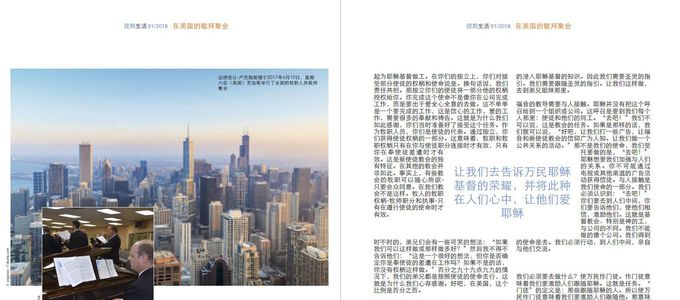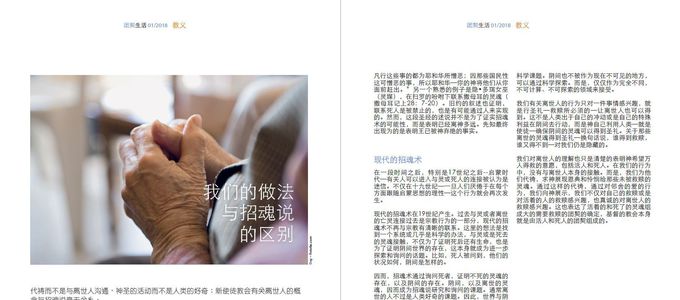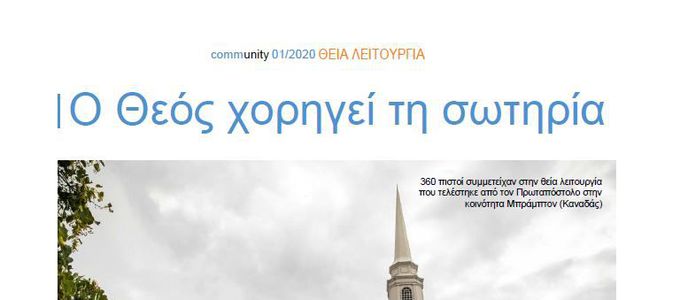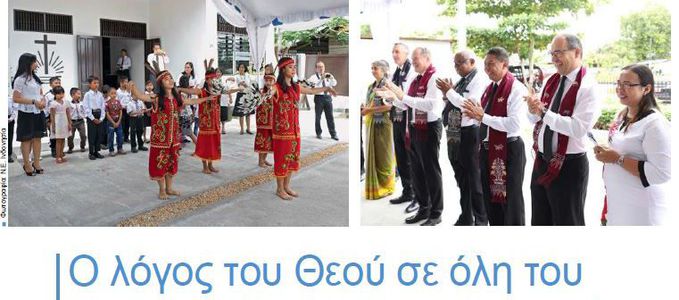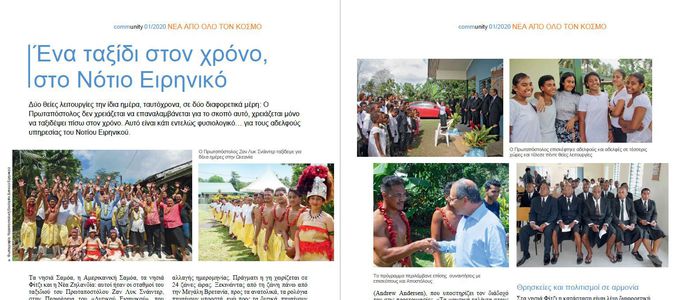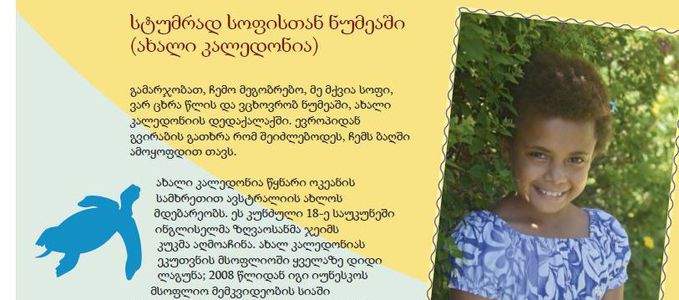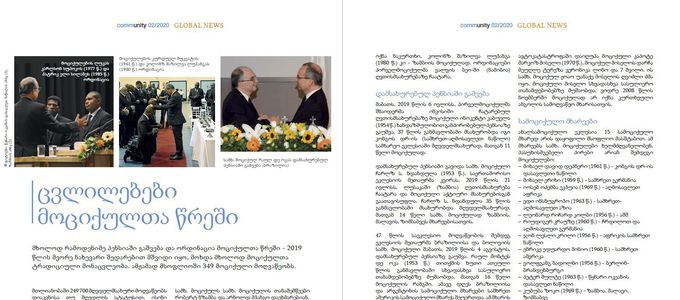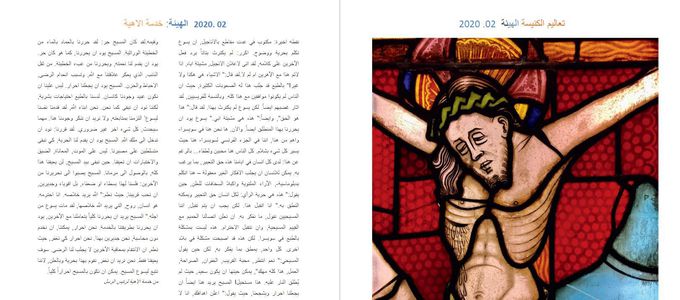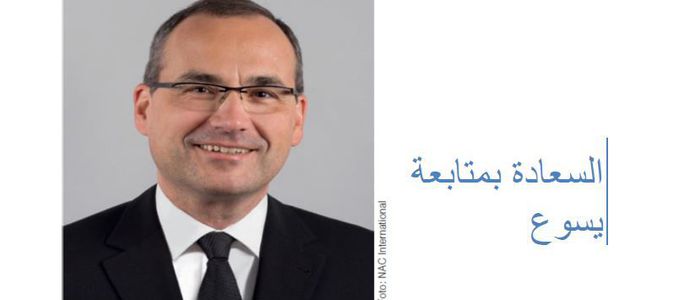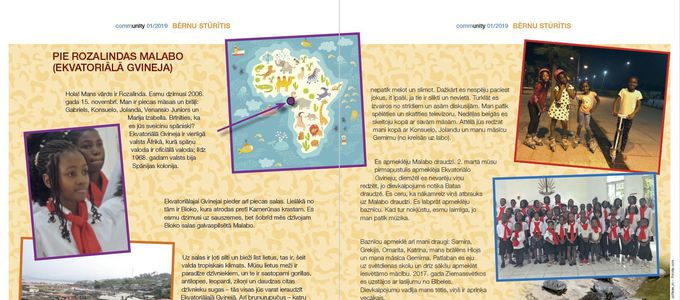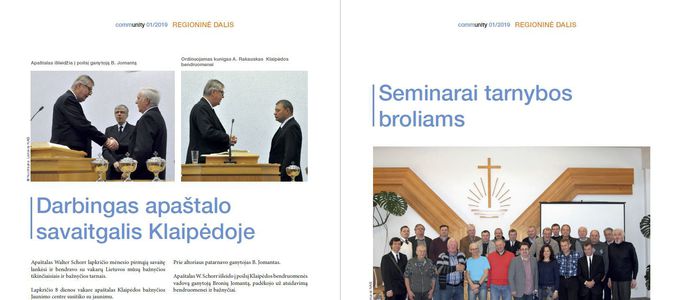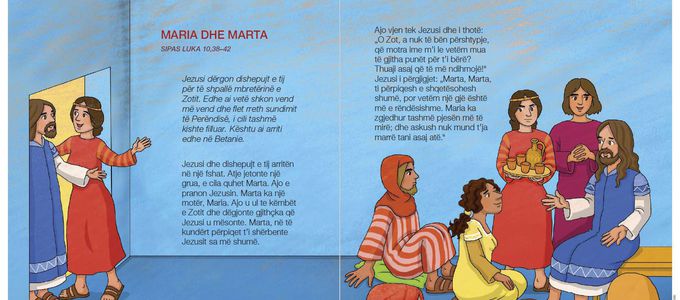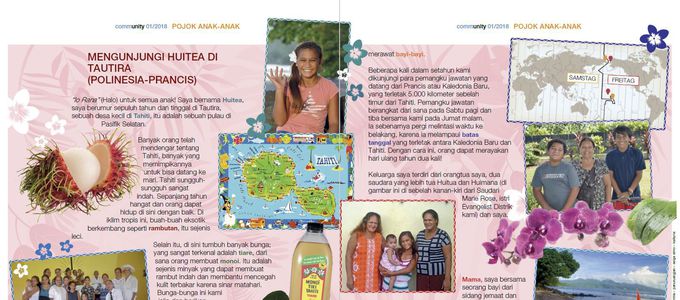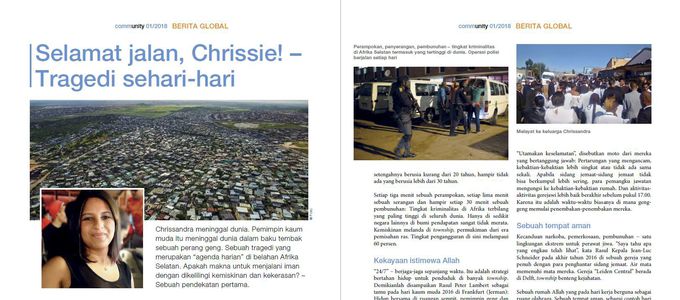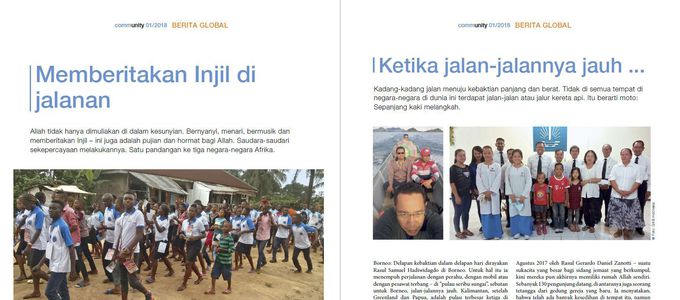
When two readers are talking about community, they are not necessarily talking about exactly the same magazine. And that is intentional. Here is a look at the broad spectrum that a single magazine covers.
The international magazine of the New Apostolic Church, community, is published in over 70 countries, either in printed or digital form. However, not all editions are the same. There are many versions and formats and, above all, many different ways how the magazine reaches the readers.
Well-organised and in co-operation with the respective Church leaders, community meets the various requirements of a joint Church magazine: in Brazil as well as in South Africa, in Armenia and also in Papua New Guinea.
The content: compact, complete, or regional
Whatever the version, they all have a common core: an editorial by the Chief Apostle, spiritual impulses from a divine service, an article on our Church doctrine, and articles on how we practise our faith. This compact twelve-page issue has been dubbed “core community”. It can be read as a stand-alone issue, but it also serves as a kind of envelope for other versions.
The complete 32-page magazine features more content: for children there is a Bible story in every issue and a short interview with a young Christian, there are stories from congregations around the world for young and old, and reports on the Chief Apostle’s travels—on an alternating basis to cover all continents. The so-called core community and the complete issue are produced by the New Apostolic Church International in co-operation with Bischoff Publishers, which processes the English, French, and Spanish editions and makes them available to the 15 District Apostle Areas.
And then there are the regional sections: national editorial offices supplement the international magazine with their own reports. These include reports from the congregations, letters from the local Apostles, and any events that may have been scheduled in the local churches. Good examples of such regional issues are distributed in Brazil, South Africa, and in Ghana, Nigeria, and Sierra Leone. The latter three are published by the New Apostolic Church Southern Germany.
The format: small, large, full colour, monochrome
The International Church administration supplies nearly 50 editions: in the formats A4, letter, and 210x280mm, with and without trim marks, monochrome, or full-colour. Here too, the different requirements in the various countries are taken into account. Some print on large offset presses, while others perhaps print on small office printers. And then the standard paper sizes across the world vary a little. community is adaptable thanks to a feature called Liquid Layout.
The way to the reader: on paper or in digital form
community is the mouthpiece of the Church leadership, especially in those regions of the world, in which people have no or only limited access to the Internet. In addition to the Church’s many online offers, such as websites, online portals, and apps, the magazine complements the existing communication. It is currently distributed in 12 District Apostle Areas, some of which have their own editorial teams. In addition to English, French, and Spanish, the magazine is also produced in Arabic, Chinese, Indonesian, Japanese, Georgian, Croatian, Latvian, Portuguese, as well as in many other languages. A digital version of some of these can be downloaded free of charge from the community archive on nac.today.
For distribution, the local Churches use whatever the Church structures offer: community is distributed by parcel, letter, and in person. The digital version is not only made available for download on websites, but is also sent to the members by email, WhatsApp, and other messenger services.
Working together across borders
The co-operation between the various editorial offices is smooth and efficient. There is a worldwide network of editors, graphic designers, translators, and communication experts who are involved in the creation of the various editions of the magazine. It is a classic joint project, but one that demonstrates that individuality and local requirements do not need to be abandoned.
And things are still moving on. Even in its sixth year, there are still ideas and impulses to bring this international medium forward: John Kyalo, the nac.today correspondent in East Africa, writes that a Swahili edition of the magazine would be important for the members in East Africa. And the District Apostles Michael Deppner and Tshitshi Tshisekedi from the Democratic Republic of the Congo are thinking about how they can make the content available to the three million brothers and sisters in the DRC.
Viviana Aloy from Argentina writes that the articles on our doctrine and faith are popular with the readers. This is one of the missions of community, which will continue to carry special weight in the future. This can also be seen in the use of community articles in the small group discussions that take place during the week in the USA: talking about one’s faith and taking up certain impulses—also an agenda of community.
It is not by accident that the magazine carries the name it does: “comm” stands for communication, “unity” for the oneness of the Church across all national borders, and “community” for the fellowship of the members.







